Lixuan Zhu
LoCI-DiffCom: Longitudinal Consistency-Informed Diffusion Model for 3D Infant Brain Image Completion
May 17, 2024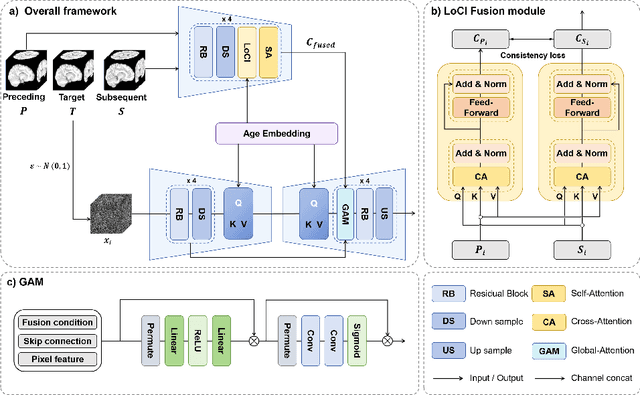
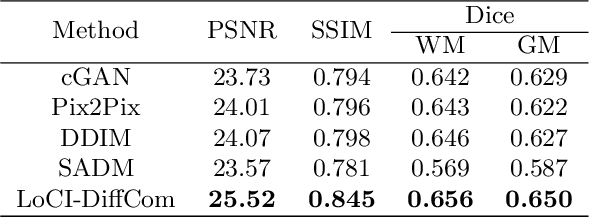
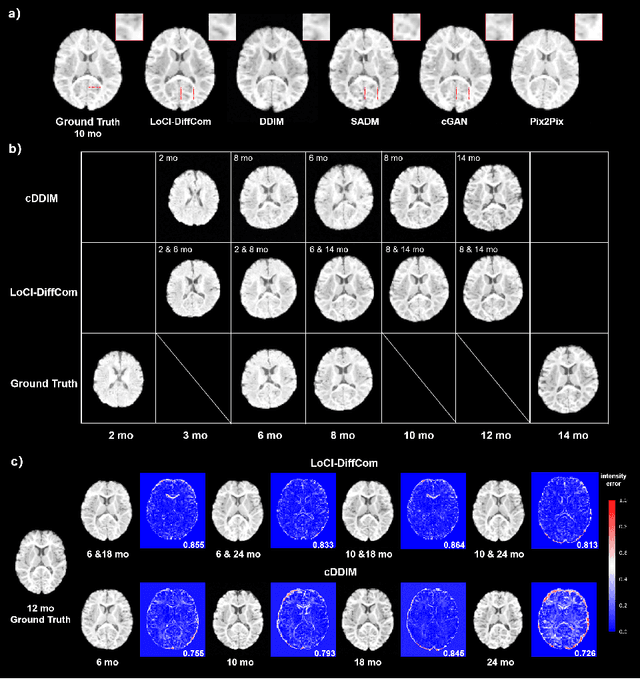
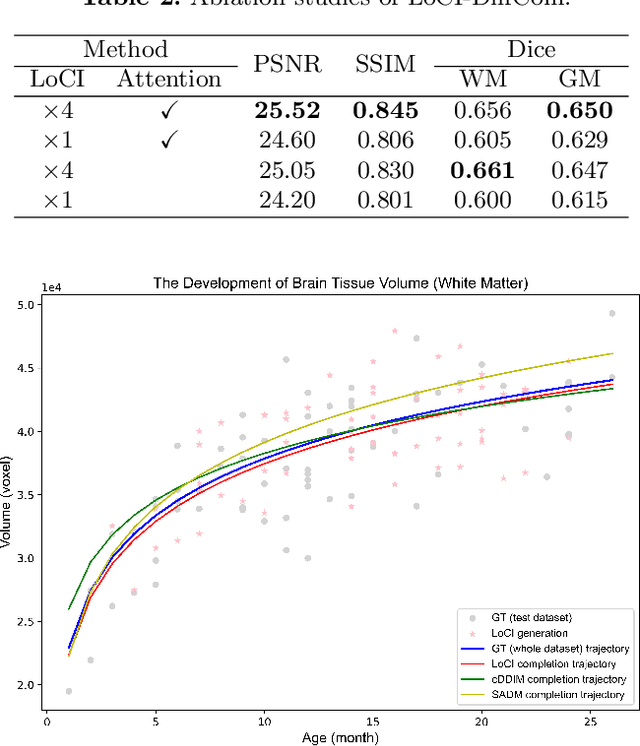
Abstract:The infant brain undergoes rapid development in the first few years after birth.Compared to cross-sectional studies, longitudinal studies can depict the trajectories of infants brain development with higher accuracy, statistical power and flexibility.However, the collection of infant longitudinal magnetic resonance (MR) data suffers a notorious dropout problem, resulting in incomplete datasets with missing time points. This limitation significantly impedes subsequent neuroscience and clinical modeling. Yet, existing deep generative models are facing difficulties in missing brain image completion, due to sparse data and the nonlinear, dramatic contrast/geometric variations in the developing brain. We propose LoCI-DiffCom, a novel Longitudinal Consistency-Informed Diffusion model for infant brain image Completion,which integrates the images from preceding and subsequent time points to guide a diffusion model for generating high-fidelity missing data. Our designed LoCI module can work on highly sparse sequences, relying solely on data from two temporal points. Despite wide separation and diversity between age time points, our approach can extract individualized developmental features while ensuring context-aware consistency. Our experiments on a large infant brain MR dataset demonstrate its effectiveness with consistent performance on missing infant brain MR completion even in big gap scenarios, aiding in better delineation of early developmental trajectories.
Cas-DiffCom: Cascaded diffusion model for infant longitudinal super-resolution 3D medical image completion
Feb 21, 2024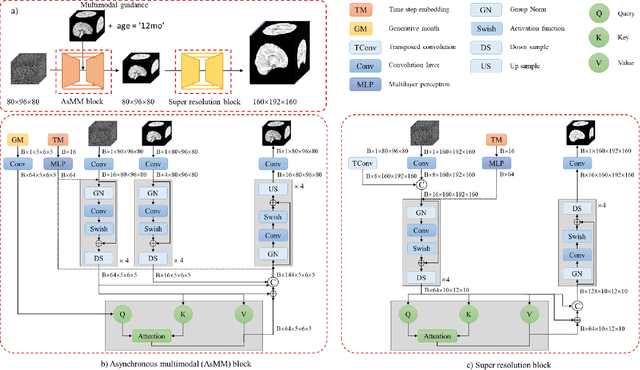

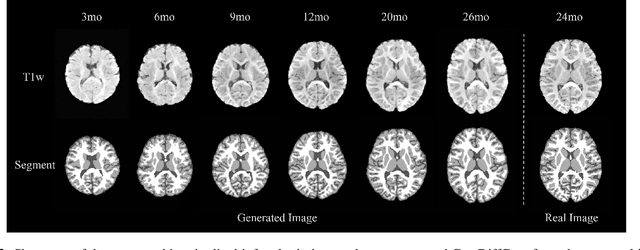

Abstract:Early infancy is a rapid and dynamic neurodevelopmental period for behavior and neurocognition. Longitudinal magnetic resonance imaging (MRI) is an effective tool to investigate such a crucial stage by capturing the developmental trajectories of the brain structures. However, longitudinal MRI acquisition always meets a serious data-missing problem due to participant dropout and failed scans, making longitudinal infant brain atlas construction and developmental trajectory delineation quite challenging. Thanks to the development of an AI-based generative model, neuroimage completion has become a powerful technique to retain as much available data as possible. However, current image completion methods usually suffer from inconsistency within each individual subject in the time dimension, compromising the overall quality. To solve this problem, our paper proposed a two-stage cascaded diffusion model, Cas-DiffCom, for dense and longitudinal 3D infant brain MRI completion and super-resolution. We applied our proposed method to the Baby Connectome Project (BCP) dataset. The experiment results validate that Cas-DiffCom achieves both individual consistency and high fidelity in longitudinal infant brain image completion. We further applied the generated infant brain images to two downstream tasks, brain tissue segmentation and developmental trajectory delineation, to declare its task-oriented potential in the neuroscience field.
 Add to Chrome
Add to Chrome Add to Firefox
Add to Firefox Add to Edge
Add to Edge